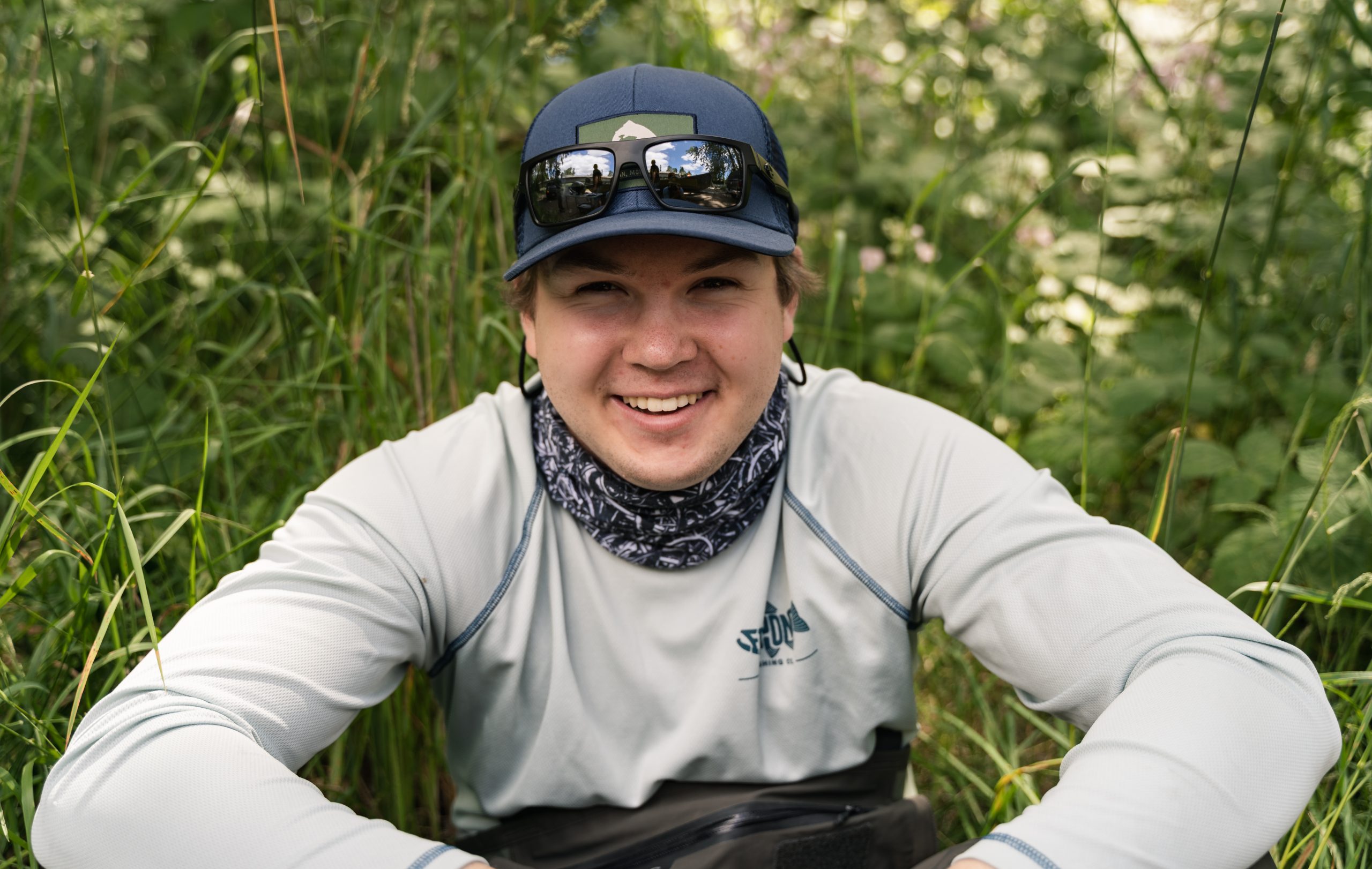Dan Eiden is up early, climbing out of his tent as the sun crawls over the broken sagebrush hills just east of Oregon’s Deschutes River. For the conservation-minded rising senior at Gustavus Adolphus College, the first days of his summer internship almost feel like a fairytale as he explores the waters that wind through places with names like Frog Springs Canyon and Crooked River Ranch and Lake Billy Chinook. But what’s magical for Eiden is just another day for the Columbia River redband trout that he’s trying to fool. He selects a dry fly and ties it on before making his way down to the waterside, hoping to catch a few fish before his first meeting of the day.
≈
A native of Menomonie, Wis., Eiden continued a multigenerational family tradition by following his parents and older siblings to Gustavus. He knew he wanted to major in environmental studies because of the Gustavus program’s interdisciplinary approach that draws together knowledge and insights from many areas of study to address the environmental challenges of our time. What Eiden wasn’t counting on was also majoring in philosophy, a decision he made after taking a course called Mind and Matter with professor Josh Brown.

“At first it was just a class I took to fulfill a liberal arts credit, but I fell in love with the writing process of philosophy and the questions it allowed me to ask,” Eiden recalls. “By studying philosophy I’ve acquired the ability to think critically in a way that really opened up the rest of my college experience.”
That education at the intersection of environmental studies and philosophy has already come in handy this summer, as Eiden joins two other students and one recent alum from across the country in the Trout Unlimited Costa 5 Rivers Odyssey program. The four-week experience has them exploring the Columbia River basin and its tributaries, learning about the problems facing the watershed and how they’re being addressed, and sharing stories of the people they encounter on their journey. So far, Eiden and his team have attended the U.S. Forest Service Pacific Northwest station’s annual meeting to hear from Environmental Protection Agency and U.S. Geological Survey representatives, learned about aquatic conservation efforts in the region, spent time on the Warm Springs Reservation to explore the Confederated Tribes of Warm Springs’ attitudes on dams and fishery quality, and met with a water policy lawyer who represents Trout Unlimited. In between the various meetings and field experiences, they’ve also made plenty of time to fish.
“We’ve been able to interact with so many people—policy makers, tribal leadership, fishing guides. All these areas come together to ultimately work for the good of the river,” says Eiden, who is the president of the Gustavus Fly Fishing Club, a member of the Epsilon Pi Alpha fraternity, and a student-employee in the Office of Marketing and Communication.
In the coming days, the team will get tours of dams on the Deschutes River before continuing to Northern Washington to explore the Cascade Mountains’ Methow River, the Snake River in Idaho, and the Grand Ronde River back in Oregon. Most nights are spent camping, with the occasional visit to a population center for meetings, provisions, and to upload the content they’re writing, recording, and photographing.

“It’s all about trying to understand the Columbia River and share stories that bring to light issues that aren’t getting attention in the watershed,” explains Eiden, who is partnering with other members of the Odyssey team to document the summer on Instagram and through other channels.
Around the bend, Eiden plans to find a career where he can protect the river systems of the United States by fighting for clean water, native fish populations, and public lands. Of course, Eiden says, he’ll also guide some fly fishing trips. For now, he’ll continue to go with the flow, taking advantage of the unique summer opportunity that Gustavus helped prepare him for.
“My environmental studies classes have given me the tools to be ready for this field experience. A lot of what I’m learning in the classroom I’ve been able to apply out here,” Eiden says, pointing out that his philosophy background has also informed his conservation work. “When I’m out on the river I understand things that I wouldn’t otherwise, that there are multiple things going on. There are many factors that go into what these waters are experiencing, and Gustavus has prepared me to understand systems as part of the greater whole.”
≈
Stripping line off his reel, Eiden takes several false casts before letting the fly go. It hangs in the air and lands on a gently swirling eddy, floating downstream before a trout rises to take his fly. As he bends down with his net and brings in the fish, Eiden’s sunburnt face breaks into a smile.
After releasing the trout back into the river, he looks across the water at the high desert before turning around and hiking back up the bank toward camp. There’s more water out there to cover.

Leave a Reply
You must be logged in to post a comment.